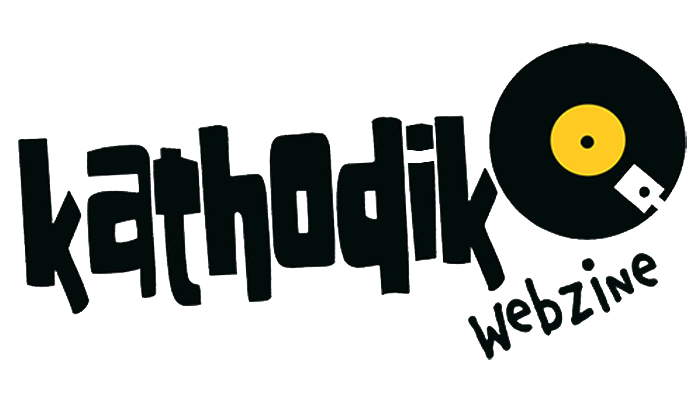
Confront Recordings is a British music label that occasionally frequents the digital meanders of Kathodik. His productions, refined editions ranging from Free Jazz to Minimal Improvisation, always published with an “adventurous” attitude, are well received on Kathodik. Also for Confront Recordings, as for the other interviews, I realized that the time had come for a deepening of knowledge of the label and the philosophy that animates it and I spoke about it with Mark Wastell, founder and director of Confront Recordings. Mark talked about the hows and whys of making improvised music in the UK today, providing an interesting take on Music.
Here you can find the Italian translation
What are the origins of the label? How did the idea come about? What were your inspirations? What models, if any, have you referred to?
I originally set up the label – in 1996 – primarily to record and release my own projects. I’d been playing publicly at that point for a year or so and forming the label would be a way of promotion and marketing myself, a means of introducing myself to a wider audience. I suppose it was quite a ambitious thing to do. At the time I was working in a music store and had immediate access to microphones and a DAT machine, so the whole recording process was fairly easy. I also ran the little jazz and improvised record shop within the store and was regularly dealing with small, independent, musician run labels. So all of this every day activity clearly had an influence on me and made me realise that it was fairly commonplace thing to do. Organise your own gigs, record your own music, promote yourself and those closest to you via your own label. And of course, the deeper history of the music across the decades, going back to the sixties, is full of similar examples. Reflecting on it now, I guess the biggest influences on me during that period would be Derek Bailey’s label Incus and Bruces Fingers, a label run by double bassist Simon H. Fell.
Where are the labels based?
From my home in north London.

How do you choose the releases?
I still release a lot of my own projects, so this would be dependent on who I’m working with currently, what groups are important to me at the time or perhaps I’d be working on a one-off project, put together specially for a studio session. I also get sent a lot of demos, from musicians across the globe, who have finished, mastered recordings looking for a home. I have to be very diligent when dealing with demos, consider how the music fits with the aesthetics of the label but usually, it’ll be as simple as do I like it? Does it resonant with me? Do I feel a connection? It’s all very instinctive and it’s never, ever about sales potential.
Why is it mostly CD releases?
Well, the four earliest releases on the label were cassette, then CDs. I’ve released a couple of vinyl LPs. And of course, nowadays the whole label is available digitally. But yes, compact disc is my preferred medium for physical release. Cheap, convenient, quick turnaround. Easier to package and a lot more cost effective to mail to customers and distributors. Having said that, I am attracted to vinyl and do plan to do a few more in the years to come. But the medium is secondary to the music itself. If people ultimately stop consuming physical product I would still continue releasing digital. The music needs a conduit to the end user and I’m well aware the people trust Confront’s choices, no matter what form it is delivered in.
Do you plan for future vinyl releases?
Yes, I’m planning to re-issue Derek Bailey & Simon H. Fell’s live recording from Sound 323 on double 180g white vinyl. It’s had a couple of CD issues on Confront over the years but it’s now long overdue a re-release. That’ll happen later this year hopefully.

What do you think about co-productions between record labels? Do you think it is a viable option for your labels?
That’s not something I ever think about or been asked to do. I can’t really see the benefit?
Do you think it is important to use social media to promote improvised music?
It’s imperative! To have direct access and ways to communicate with your core audience and beyond is wonderful. Responses are immediate. I try not to over populate with notices but yes, I keep people informed about Confront promotions and releases as thoroughly as i can. Across the various platforms, Confront has about 7000 followers. That may not sound much in terms of big business but it’s very good for our little area of activity.

How do you see the national and international improvised music scene?
On the whole, both nationally and internationally, generally very healthy. There’s certainly no shortage of musicians wanting to make the music. Plenty of up and coming performers that’ll ensure the music has a future. Nationally, there’s still not enough places to play and even fewer that are actually able to offer a decent fee. We’re still reliant on grass roots activity, musicians acting as bookers and promoters and looking after the business themselves. And considering my own history, I’m all for that. Unfortunately, there are no national, properly funded festivals exclusively for improvised music.

Could you tell us something about some of your future projects?
In the next week or so there’ll be a studio session release from Paul Dunmall and Ollie Brice called the Laughing Stone. That’ll be followed soon enough by a live recording from John Butcher, Terry Day and Max Eastley. Other projects due for release this summer include a trio of Hans Koch, dieb13 and Camille Émaille and two duos: Dominic Lash with Ståle Liavik Solberg and Joëlle Léandre with Rodolphe Loubatière.
Link: Confront Recordings Home Page
Link: Confront Recordings Bandcamp Page
Link: Mark Wastell Facebook Profile
